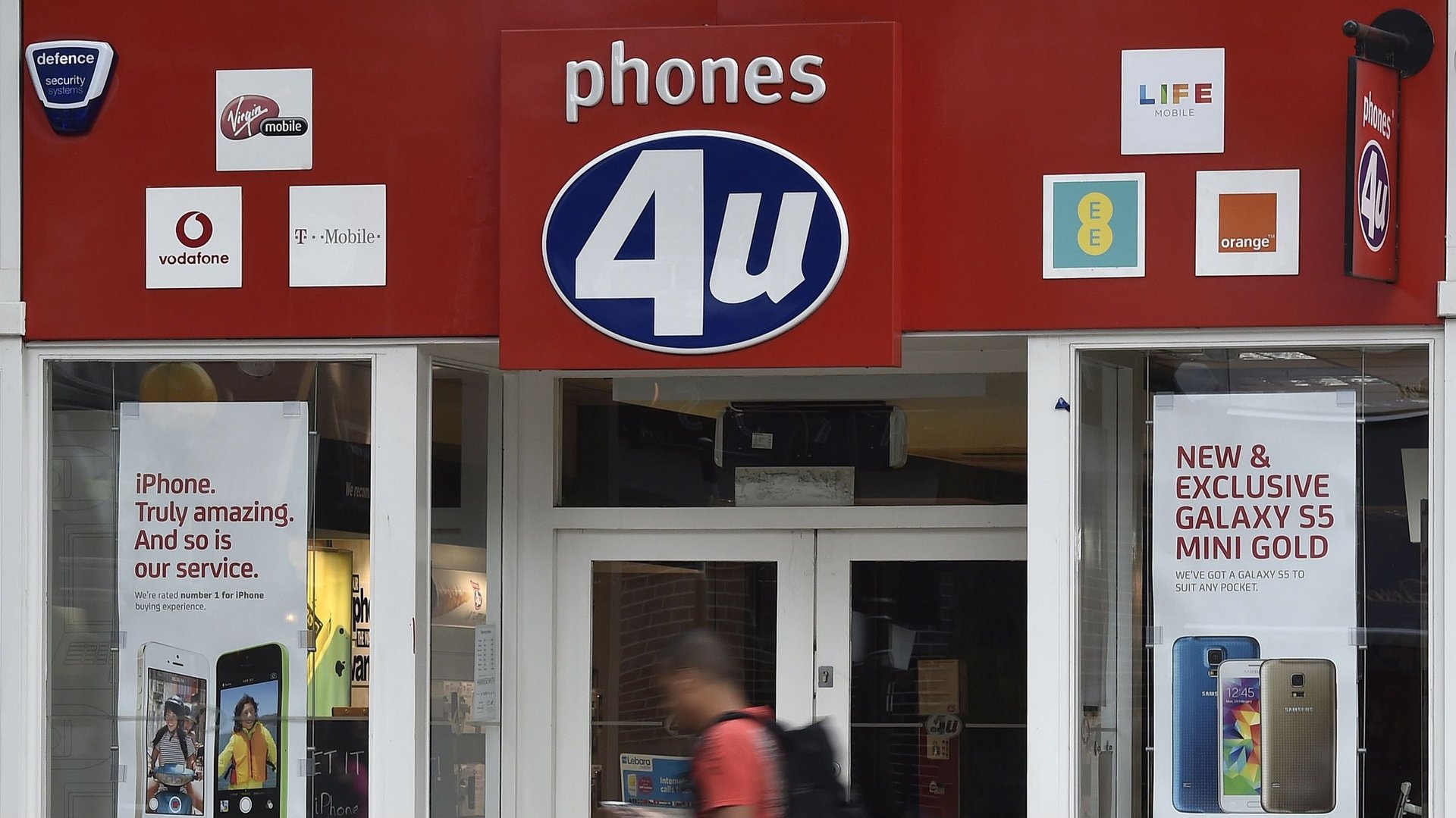Was it mobile operators or private equity that destroyed 5,600 jobs?
Britain woke to the news this morning that Phones 4u, a third-party retailer that sold mobile phones, mobile contracts, and SIM cards, had gone into administration (effectively, declared bankruptcy), after EE, the last big carrier in Britain that still had contracts with the retailer, decided not to renew them. EE—a joint venture in the UK between T-Mobile and Orange—follows Vodafone, O2 and Three, the country’s other big operators, in withdrawing from Phones 4u. Some 5,600 jobs at 550 Phones 4u stores depend on what happens next.


Britain woke to the news this morning that Phones 4u, a third-party retailer that sold mobile phones, mobile contracts, and SIM cards, had gone into administration (effectively, declared bankruptcy), after EE, the last big carrier in Britain that still had contracts with the retailer, decided not to renew them. EE—a joint venture in the UK between T-Mobile and Orange—follows Vodafone, O2 and Three, the country’s other big operators, in withdrawing from Phones 4u. Some 5,600 jobs at 550 Phones 4u stores depend on what happens next.
David Kassler, Phones 4u’s CEO, was quick to pin the blame on mobile operators:
If the mobile network operators decline to supply us, we do not have a business. A good company making profits of over £100 million, employing thousands of decent people has been forced into administration. The great service we have provided should have guaranteed a strong future, but unfortunately our network partners have decided otherwise. The ultimate result will be less competition, less choice and higher prices for mobile customers in the UK.
John Caudwell, who started the business and sold it for £1.5 billion ($2.4 billion) in 2006, weighed in too:
No surprise
It has long been clear that mobile operators dislike dealing with middlemen. Carriers have their own stores, where they can sell the products they’re keen on promoting and keep all of the margin. Third-party stores not only take some of that margin; they also give customers the chance to talk to someone who doesn’t have a vested interest in selling any particular service.
Speaking at a press event earlier this year, Gervais Pellisier, then Orange CFO and now the boss of Orange’s side of EE, complained about third-party retailers, arguing that where an operator might help a customer find the right handset for the right plan, middlemen offer the right plan for the customer’s handset. It wasn’t hard to guess that EE would pull its business from Phone 4u eventually.
The other villain?
But Vodafone, which decided to stop selling through Phones 4u two weeks ago, released a rather pointed statement hinting that this could all have been avoided had Phones 4u offered it better terms:
We were told by the Phones4u management team that they had little commercial flexibility due to their debt repayment obligations, but that they had a number of alternative strategies in place if we couldn’t reach an agreement with them.
BC Partners, a private equity firm, bought Phones 4u for £600 million in 2011. Last year, BC made a neat 30% (paywall) of that back after taking dividends from a debt issue. Phones 4u was hardly on the verge of collapse then—it had some £1 billion in annual revenue, and nearly £100 million in cash at the end of July—but the £430 million in debt, at 9.5%, maturing in 2018, made it hard for the company to stretch itself too thin. Vodafone’s statement artfully suggests, without saying it out loud, that BC Partners’ management decisions were ultimately responsible for the collapse of the company. BC Partners did not immediately respond to a request for comment.